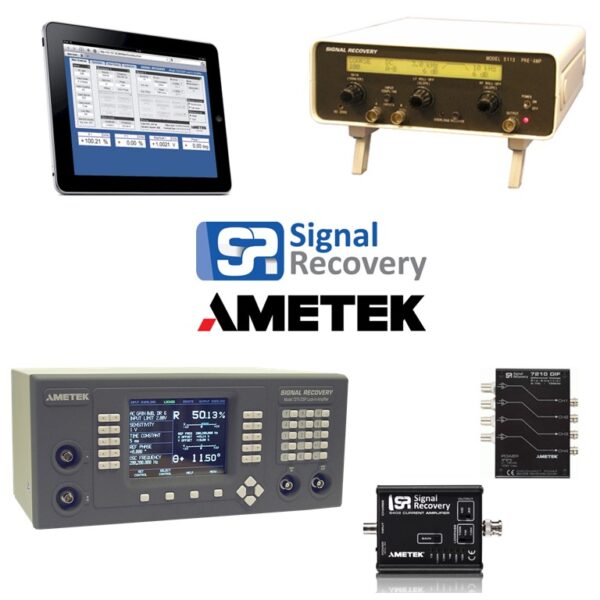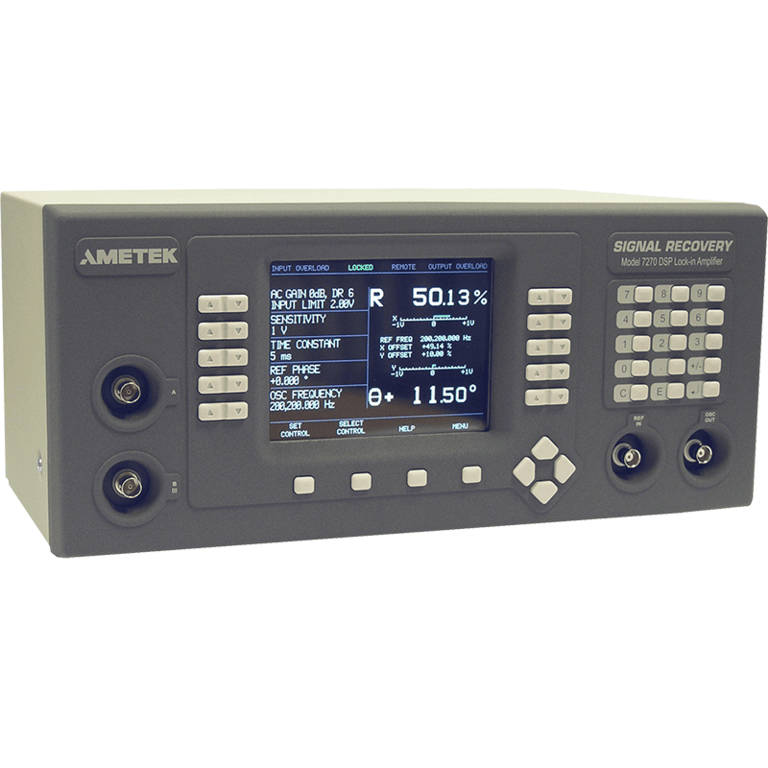Lock-in Amplifiers
Lock-in amplifiers are precision instruments designed to extract weak signals from noisy environments by using phase-sensitive detection. They work by synchronizing with a known reference signal, allowing the amplifier to isolate and amplify the component of the signal at the reference frequency. This technique makes lock-in amplifiers ideal for measuring small signals that are hidden within background noise. These devices are capable of providing accurate measurements even in challenging conditions, where traditional amplifiers might struggle to detect signals amidst high levels of interference.
These amplifiers are widely used in a variety of fields such as scientific research, optical measurements, spectroscopy, and material science. For instance, they are commonly employed in experiments requiring precise signal detection in the presence of noise, such as in electron microscopy, photodiode-based detection systems, and acoustic measurements. Lock-in amplifiers are also useful in general-purpose applications where accurate measurements of frequency and phase are critical, like in instrumentation and system integration.
➡️ Signal Recovery originated from the Princeton Applied Research, EG&G products for scientific instrumentation. They are the inventors of the lock-in amplifier.



